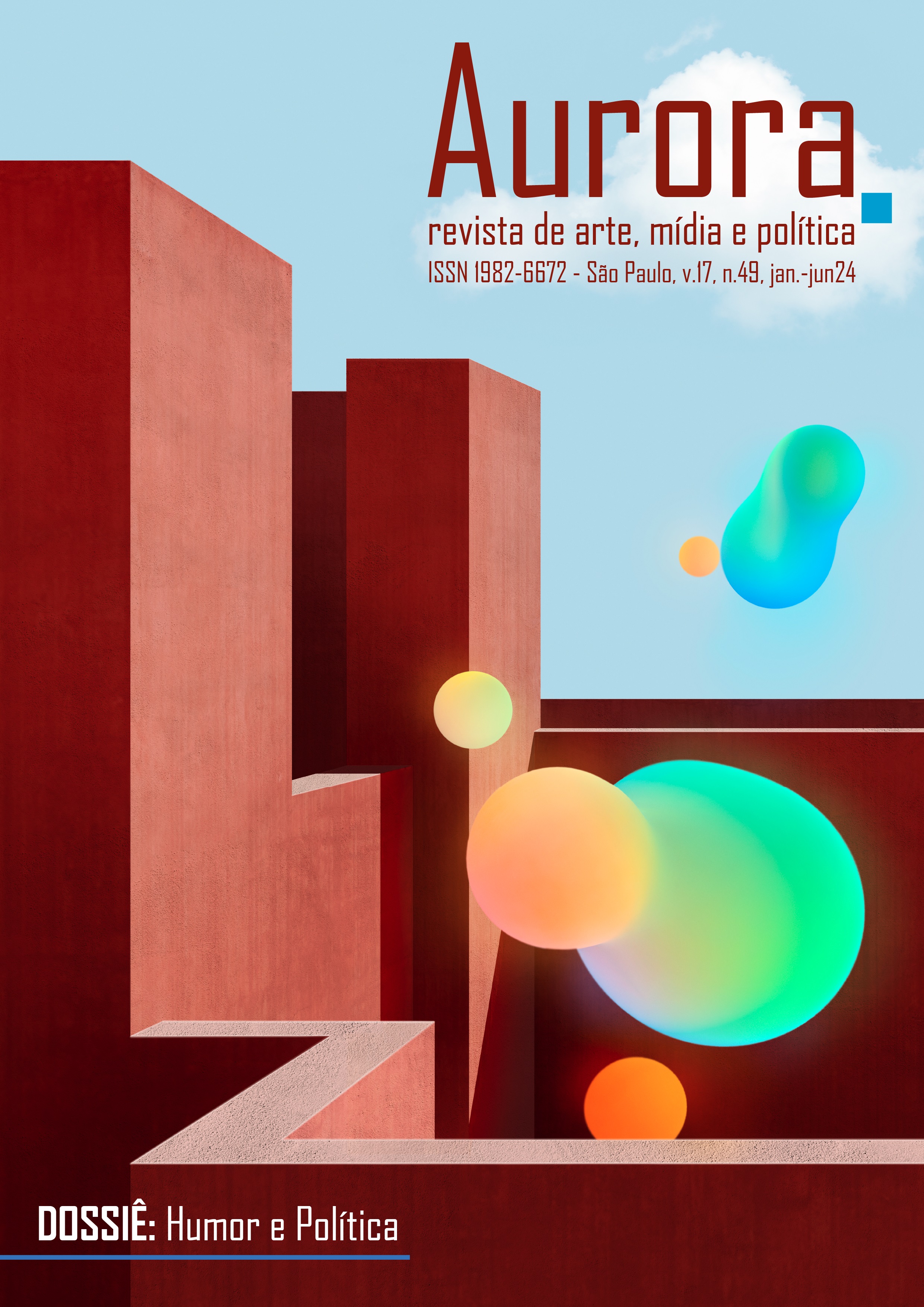“Caraíba”
cultura e tecnologia nos quadrinhos de Flavio Colin
DOI:
https://doi.org/10.23925/1982-6672.2024v17i49p263-287Palavras-chave:
Caraíba. , Karaíba., Flavio Colin. , História em quadrinhos., Floresta Amazônica.Resumo
O objetivo desse artigo é refletir sobre a obra Caraíba, roteirizada e ilustrada por Flavio Colin. Apesar de escrita nos anos oitenta, foi publicada somente em 2007, cinco anos após sua morte. A obra foi publicada pela editora Desiderata, na gráfica Vozes de Petrópolis, no Rio de Janeiro. Para as análises, foram considerados os paratextos, a construção e caracterização dos personagens, os cenários, a diagramação das páginas, o traço e o estilo dos desenhos, os diálogos entre o contexto da obra, do conteúdo e do país. A fundamentação teórica baseia-se nos estudos de Daniel Munduruku (2018), que traz a história do Karaíba, protetor da floresta, Januária Cristina Alves (2017), que mostra a biografia de muitos personagens do folclore brasileiro, Ailton Krenak (2020), que aponta a visão de mundo dos povos originários e Néstor Garcia Canclini (2019), com reflexões sobre os processos de hibridação cultural nos países latino-americanos. O livro se divide em três partes abordando o processo de transição do protagonista, Caraíba, um caçador que, ao longo da história, aprende a perceber os mistérios da floresta e as ameaças das madeireiras, das mineradoras e dos humanos predadores. As tensões e contradições nos modos de ver e viver a natureza são intensificados com a presença de personagens de lendas indígenas brasileiras.
Referências
ALVES, Januária Cristina. Abecedário de personagens do folclore brasileiro: e suas histórias maravilhosas. 1 ed. São Paulo: FTD: Edições Sesc, 2017.
BASTOS, Therezinha Xavier et al. O estado atual dos conhecimentos de clima da Amazônia brasileira com finalidade agrícola. 1986.
CANCLINI, Néstor García. Culturas Híbridas: Estratégias para entrar e sair da modernidade. Heloísa Pezza Cintrão. São Paulo: Editora da Universidade de São Paulo, 2019.
COLIN, Flavio. Caraíba. Rio de Janeiro: Desiderata, 2007.
FEENBERG, Andrew. O que é a filosofia da tecnologia. A teoria crítica de Andrew Feenberg: racionalização democrática, poder e tecnologia, v. 2, p. 51-64, 2010.
FOLADORI, Guillermo; TAKS, Javier. Um olhar antropológico sobre a questão ambiental. Mana, v. 10, p. 323-348, 2004.
HALL, Stuart. Cultura e representação. Trad. Daniel Miranda e William Oliveira. Rio de Janeiro: PUC-Rio: Apicuri, 2016.
KOOHAN, Abrahão. HAUISS, Antônio. Enciclopédia e dicionário ilustrado. 4 ed. Rio de Janeiro: Seifer, 1999.
KRENAK, Ailton. Ideias para adiar o fim do mundo. 2 ed. São Paulo: Companhia das Letras, 2020
MORBACH, Marise Rocha. A publicidade no período Médici: os efeitos da propaganda de ocupação da Amazônia. INTERCOM/UNAMA–Campo Grande/MS–2001, 2001.
MUNDURUKU, Daniel. O Karaíba: Uma História do Pré-Brasil. São Paulo:Editora Melhoramentos, 2018.
PATCHETT, Gianna. A Lenda da Iara (The Legend of Iara). 2018.
ZHOURI, Andréa; LASCHEFSKI, Klemens. Conflitos ambientais. Publicação do Grupo de Estudos em Temáticas Ambientais da Universidade Federal de Minas Gerais–GESTA/UFMG, 2010.
Downloads
Publicado
Como Citar
Edição
Seção
Licença
Copyright (c) 2024 Aurora. Revista de Arte, Mídia e Política

Este trabalho está licenciado sob uma licença Creative Commons Attribution 4.0 International License.










